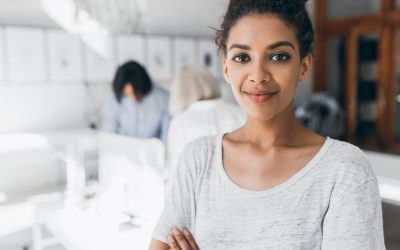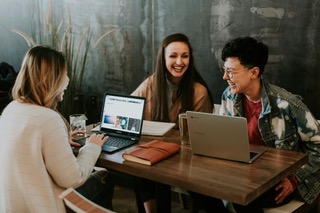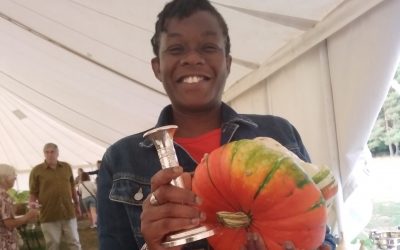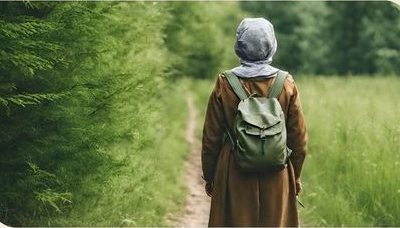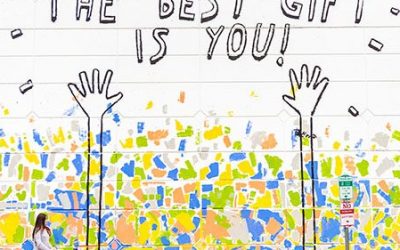The COVID lockdown resulted in a surge of digital connections but as one charity found out, a lack of digital confidence or access can result in lost voices on topics of key concern.
This interview is Part Two of Noha’s interview with Sunder Katwala, the Director of British Future. In this segment, they cover the challenges of going online, Sunder’s rewarding moments at British Future, and discussing how to productively talk about the history and impacts of British history.
To read Part One, click here:
Engaging with people from different walks of life
7) Are there any challenges that come with creating these contact spaces where you have people from different backgrounds engaging in dialogue with each other?
“I think a challenge for us and a challenge for all the people doing this work is that the people easiest to reach, in a way, are the people we don’t need to reach. You know, if I say ‘Let’s have a conversation about integration, diversity, race relations in our towns and cities, I’ll get a lot of people who have the confidence and experience to be a part of it. But it’ll be harder to get the people who don’t have that confidence and experience to turn up, and usually those are the people we want to reach.
We have had to think about the proper methodologies for that. We’ve had to do some rigorous research into that to make sure that we’re getting a broad representation in our panels. Also, you know, if you’re interested in anti-racism and anti-prejudice, you want to reach people with pretty tough views. You don’t want to always engage with people who have already grown up exercising those values. Those are great people but you really need to get to the tougher end and to together groups and then you might then be talking about groups who are very, very low on social trust. You could be talking about young men in their twenties who didn’t do well in their education and you want to engage in dialogue with them about race in our society. And it would be a very different thing you’re having with them than with students in societies. So you’ve got to think about whether it’s going to be sport, or football or popular culture, you’ve got to think about ‘How do I get there? How do I get an in?’
That’s the biggest challenge.
We talked this year, before Covid, about having a ‘Decade of reconnection’, having something to connect our society more. ‘What could we do? What unites us? What divides us? What do you feel? What would you like to do? ‘That isn’t necessarily about identity or diversity but those questions can raise those issues. So making sure that door is wide open for everyone to feel comfortable enough to engage is really important.
We’re really working hard on thinking about who we need to work with. I’m saying I want to offer everybody a voice and people are very, very skeptical that local government, national government and civic society leaders want their voice at all. People can then be reassured if you go and do it and you prove it. You’ve also got to think about the timing and be ready to listen in order to get the chance to forge that connection.”
8) With lockdown and with what we’ve discussed with media dynamics, has that made it more difficult to reach those groups?
“I think that probably it is because we’re having lots of webinars and discussions. I’ve been involved in a lot of anti-racism protests and other issues that are going on. On the whole, you’re probably, unless you work really hard, you’re going to have webinars with people you already know and see the world as you do. And there will be people having alternate webinars. We’ve been able to carry on this work, the work we’ve wanted to do in the real world, we have been able to do it online. But it isn’t perfect.
The Digital Divide
We’ve cut thirty percent of the population out just in terms of people’s digital literacy. Their ability to have the platform, access and the confidence is really low. So we’ve been studying a lot as to who that group is. A lot of charities have focused on practical things; the telephone came really back into its own under lockdown. You could do quite a few things online to reach people online. But you need more people to knock on doors and use the telephone for people who don’t have the digital confidence and capacity. So, it’s been possible but we’re also aware that there are gaps when you switch to online. Sometimes people really like that as well because you can have conversations with and reach people who have different views online. Also, online conversations can be quite respectful. For example, you can’t talk over somebody online because then the technology won’t work. Donald Trump wouldn’t be able to debate online! People like that, having those conversations online as they can do so from their own space and from their own setting. A lot of people also like using text.
But we have also definitely lost people. So, we need to think when it is safe, we need to go have those conversations with people who don’t have online access. Of course your experience of the last three months have been different if you’ve had internet, a garden or kids in terms of whether you’ve felt isolated.“
9) Do you have any memorable, rewarding moments or stories to share from your time at British Future?
“You learn a lot from doing this. You become more empathetic to people you really want to talk to and I’ve found that really reassuring. Sometimes I will go and specifically recruit a group which has extremely tough views, I might specifically get a group that gives immigration a 3 out of 10 to hear from their views. You brace yourself for a rather tough conversation but you can come out from that reassured as well as having heard some tough views, just because of the way they describe change in their own lives. I was talking to a group in the West Midlands, the question was ‘What do we think of Britain fifty years after Enoch Powell?’ and the group we recruited we thought would say something like ‘He was right, we’re just not allowed to say it.’
The first thing this group of people told me was about how racist their parents were and how they weren’t nearly as racist as their parents, as they got to know the people they shared their society with. But their children were now in a completely different place and they were proud of that. So, they had this lived experience of what changed over time, and they were very annoyed at the government for freedom of movement. But I came away feeling committed and reassured that they weren’t just being polite when they said ‘racism is wrong’. They wouldn’t have been able to talk about their grandchildren in the way that they did if that wasn’t genuine.
The Arc of history
We’ve also done a lot of work on history, particularly the world wars and remembrance, but often many people don’t know much of it. We asked people what historical events they saw as important, about what they knew about World War One and they didn’t really know much. We did separate men and women’s groups and the women just opened up and said ‘I can’t tell one war by the other, it does seem interesting really, and I would like to know more.’ In contrast, some of the men just tried to bluff their way through it and it was clear they really didn’t know!
This is a project we’re doing with the British Legion. We’re particularly looking at the Muslim contribution in the First World War because we found there was a lot of Indian army and Sikh contribution but there was also an enormous Muslim contribution. I’ve been saying on the radio that the armies that fought 1918 and 1945 look much more like the Britain of 2018 rather than the Britain of 1918 and people don’t know that. It’s a surprise for many. Of course, the contribution is still rooted in empire but it’s still a way in.
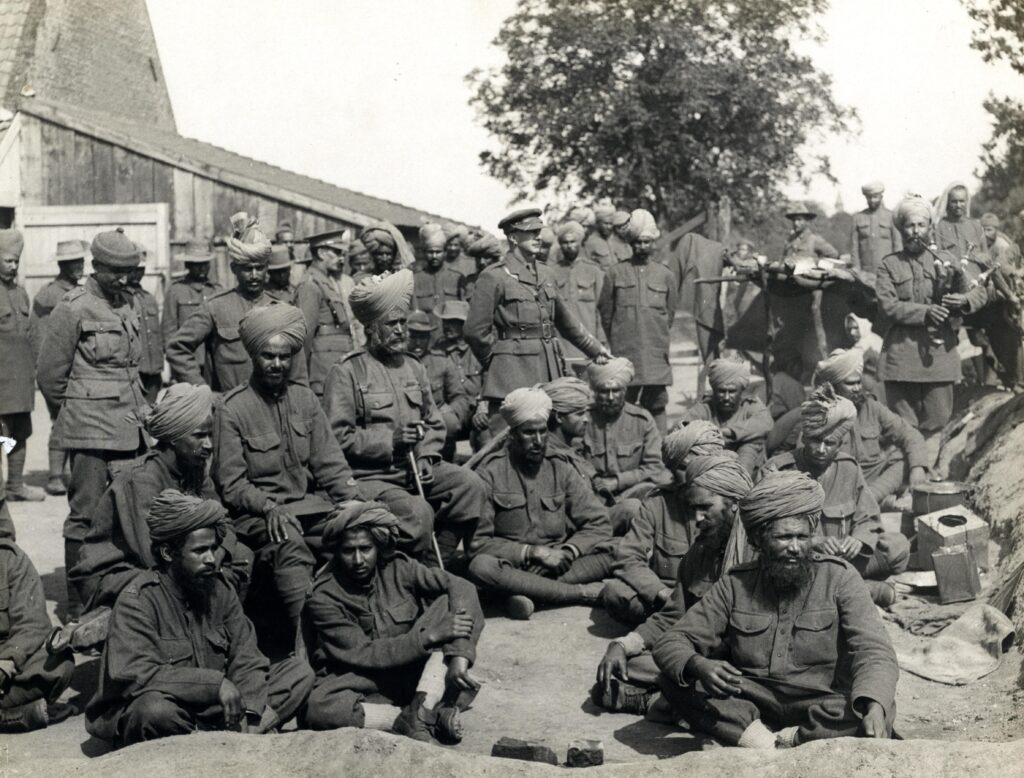
What’s interesting is how warm the response is from a variety of different groups of people; young people who are black or Asian say this is great because they say they should be able to see themselves in the textbook, that they should be able to see some of their family ancestry in it and in the wider curriculum. Also, older white British people who are very attached to these stories of remembrance tend to be very reassured, encouraged and surprised by the fact that the minority population have a stake in this piece of history too. So that turned out to be very emotionally powerful bridging the gap between people of different backgrounds to feel part of that history. It’s interesting from a minority perspective that this older majority white British attachment to that history wants to make space for you and so you feel encouraged in doing it. So that’s been really interesting.
We did a session on this in Belfast, amongst a working-class Loyalist community and saw local people who are Muslim in Ireland. They are a small population and we’ve seen how little contact the people in the room have ever had. We saw that they were people who would be stereotyped by the idea that they would be against diversity but they were really interested in this story. So, it’s been really interesting and inspiring to see why different people are attached to the same story. Different people have different reasons to be attached. I spoke to a young lad in Birmingham who said “I walk a little taller in the street now because I know this history from a hundred years ago and that’s changed my identity.”
You can still have lots of views about the history of war and peace but just accepting that this is the history of this country that has shaped us and that we’ve all got a different connection to it, turns out to be quite interesting.
It’s not about culture wars
So, it worries me a bit that now, as you said, we’re in this stage where history is going to be the culture war. We’ve got this experience of history being quite a strong area that can sort of bridge in surprising ways, particularly around the contribution of the people from the Commonwealth to the contribution of people in the World Wars. I’m quite worried about avoiding culture wars about statues getting in the way of debates about history that are more productive. I think it’s quite reasonable for people to argue to take down a statue of a slave-owner but I think that the type of approach that we’ve been pioneering is really important in this case. It’s important that people with different views are in the same place talking to each other, not people ranting online or people with similar mindsets meeting together to say the other side is mad. I think getting people together with different views to have this dialogue can be more constructive. I think getting up more statues might be more productive than pulling down every one but you know, where some people’s sole contribution was to slavery, you might want to notice that it’s certainly the time to make a change.”
The controversy and the complexity
10) How do we remember the history of Britain, both with its positives and negatives, in a constructive way?
“I think it is incredibly important. I think that though the Black Lives Matter movement came from America to Britain, the debates about race in Britain will be different. In America there is a contrast between the legacy and history of slavery and the Statue of Liberty. In Britain, people will say there were distinct challenges faced by British Black people.
We need to think about empire and decolonisation and how immigration changed our society. There is no way to explain the shape of society now without turning to this history. Yet, we’ve forgotten it. So, I think there’s common ground there. We need to put all of that in the history books and teach it, teach all of the controversy and the complexity. We wouldn’t be the society we are without it. While we can’t change the past, we are responsible for the way we live with it and the way we talk about it. That’s where the common ground is. Whatever political position you come from, history matters.
My perspective is we were worried about doing that for too long. In the 1970s, 80s and 90s the classrooms of our cities were diverse because of the legacy of the empire. I think there is a feeling that talking about why our classrooms are diverse is something that is too uncomfortable. But if we can talk about anti-racism and human rights in schools, I think we should also be teaching about the legacy of the British empire.
Take the example of the Holocaust. It’s really important to remember this event and the trauma attached to it, yet for Britain it is in some way a safe story to tell. We can all agree that the Holocaust teaches us the importance of human rights on a democratic level, it’s been relatively comfortable for us because Britain was the other side on that war. What we need to do is address our own complex history, you’ve got religious freedom in this country because of the wars we fought. We’ve got stories of immigration that came out of a legacy of empire and decolonisation. I think we need to get past this fear of telling these stories and realise that they are actually productive for our society.”
11) Now, to move away from history and focus on the present. Here at TGIUK, we’re primarily focused on telling the stories of people who have migrated and to demonstrate how they’ve become a part of that ‘we’, how they have become members of our British society. You’ve pointed out in the past that it isn’t good enough to ‘Other’ people who have migrated when we talk about their lives and contributions. Rather, these stories should be part of telling the stories of British society. What do you think the effect will be in telling these stories? How will that affect the way we talk about those four original topics British Future is focusing on?
“My constructive challenge to my liberal friends, who are pro-diversity allies, is to realise that in this debate concerning diversity there is a very strong sense of us versus them, that they’ll never be part of us. We need to realise that too many of these stories are about what migrants have done for us or how their contribution has benefited our culture. These pro-diversity, pro-migration, pro-multi-ethnic stories are a little too paternalistic and are still sort of saying, ‘Well done we should applaud these people’. They aren’t really moving to this sort of equality of diversity where we’re all in this together.
So how do we do this? What we need to be focusing on is the everyday stories. It isn’t enough to focus on singular massive contributions of individual migrants, such as, let’s say Mo Farah when he wins a gold medal. Not everyone wins gold medals. I think we should be more interested in what is our everyday normal society and the stories within that. These are stories about relationships between teachers and students, workmates and colleagues, those stories to me are quite good. They aren’t the individual rare stories that are told in a paternalistic manner that congratulates the achievement of a disadvantaged person. There are many more stories about what we have done together. London and other big cities, I think, have done this to an extent, but we need much less of that celebration of ‘Isn’t diversity wonderful?’. Instead, what we need much more of, are those stories that are a reflection of who we are and why we are.
We see this in stories of refugees who have come to Britain and the communities that step up to help them out. Presuming a refugee from Syria for example, chooses then to volunteer during Covid to help out and give back. Then we’ve got a more dynamic and rounded set of stories. You don’t have to invent Google, win a Nobel Prize or win a gold medal. It’s actually the everyday contributions of someone who was inspired by their dad being a doctor and thus becoming a nurse in Britain. It’s those stories about people working and living together which I feel are the most important stories to me. Those stories allow us to be more confident in knowing who we share our society with.”
The Decade of Reconnection
12) To end with, I want to ask, what can we be expecting from British Future and how can the public get involved?
“We’ve got this big project that we’re a part of along with lots of other people. We wantthis to be a Decade of Reconnection. We were saying this in January as this is a new decade, we hadn’t heard of Covid at that point. But it’s actually made our mission all the more important, as well as challenging!
There’s a sense that people felt we came together earlier on during Covid but we’re losing our stamina now. I think that sentiment comes out of a feeling that we connected with people close to us earlier on, say our neighbours, and that feeling is harder to sustain when trying to connect with people further away from you. Building those connections across towns is more difficult than building it with your neighbours. Sociologists call it ‘building and bridging’: you can bond with other people but without bridging you end up with a fragmented society. So this project is called ‘Talk Together’ where we’re asking people to create their own groups and talk. There’s also a survey on our website, with questions concerning what unites us and what divides us but also what we should do about it. Not the government or businesses, we’ll call on them, but ‘Talk Together’ is focused on things like if you don’t know your neighbours, that’s in your power to change.
The ‘Decade of Reconnection’ is a marathon, not a sprint. So this year is about understanding how we hold on to this sense of connection that has come about in a difficult and tragic time but also using it beyond that. So that’s one of our big themes.
We’re also keen on returning to Remembrance this autumn and next year. We do think that the contributions people of every background have made, and its recognition in our history, is an incredibly important way to broaden the history of this country. We’ll be calling for that this autumn. We’ll be asking people to help us take that into schools and local communities. We want to recognise all the service and sacrifices made and that’s entirely compatible with a really critical investigation of the history of empire and colonisation. We don’t need to choose between being critical and recognising the positive sides of that history that’s shaped us.”
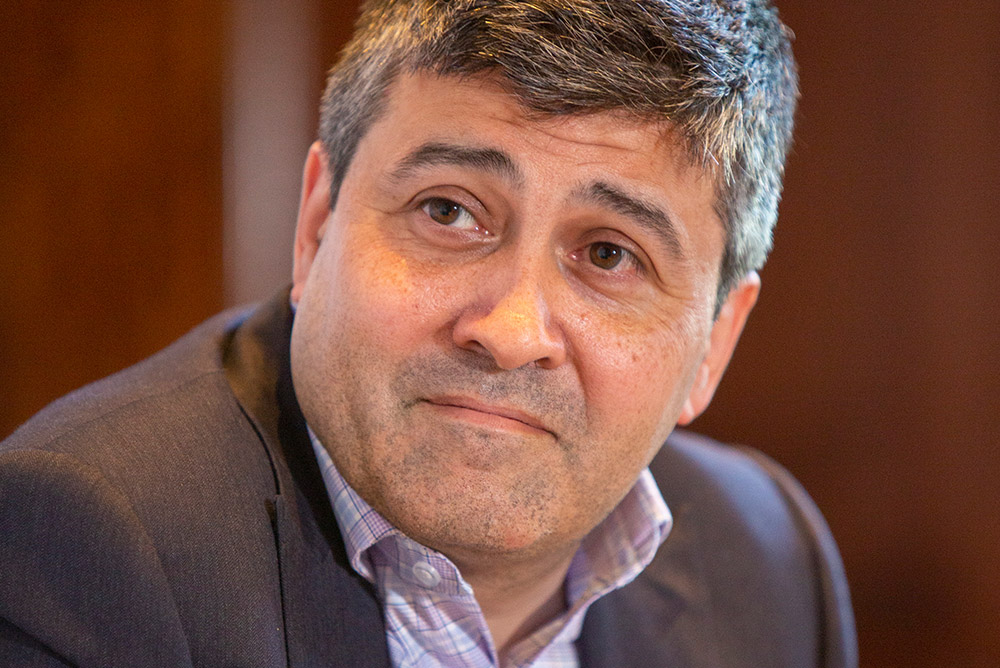
Sounds very exciting! I do hope we’ll see this connection that has forged across the country to endure beyond this year. Sunder, thank you for agreeing to be interviewed. I think this has been a very thoughtful conversation and we’ve covered an array of topics that are very relevant right now. I am excited to see what British Future does next, and I encourage anyone who reads this article to also get involved. Thanks again!
To take the ‘Talk Together’ survey, click here: https://together.org.uk/
To find out more about British Future, click here: http://www.britishfuture.org/


